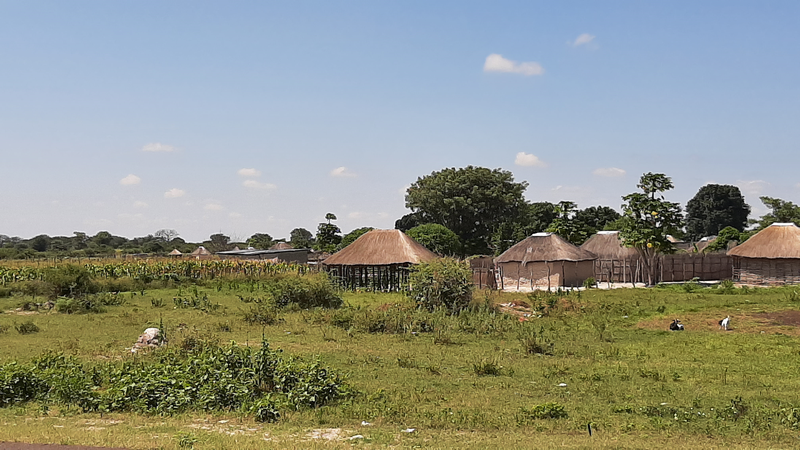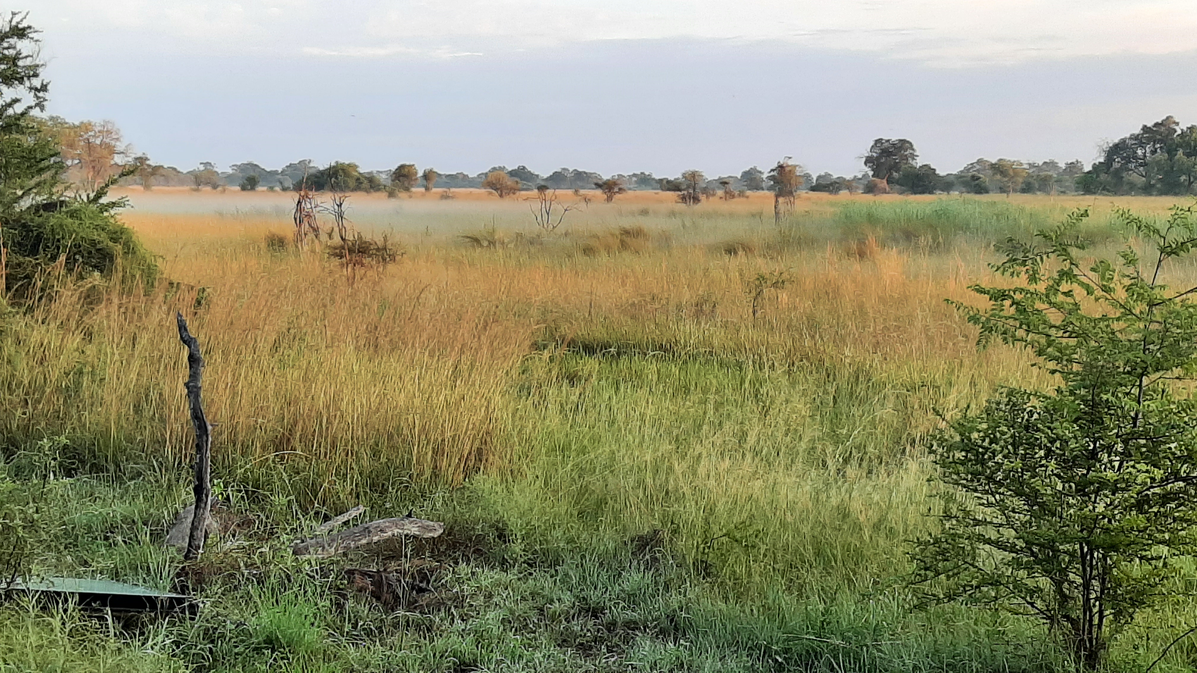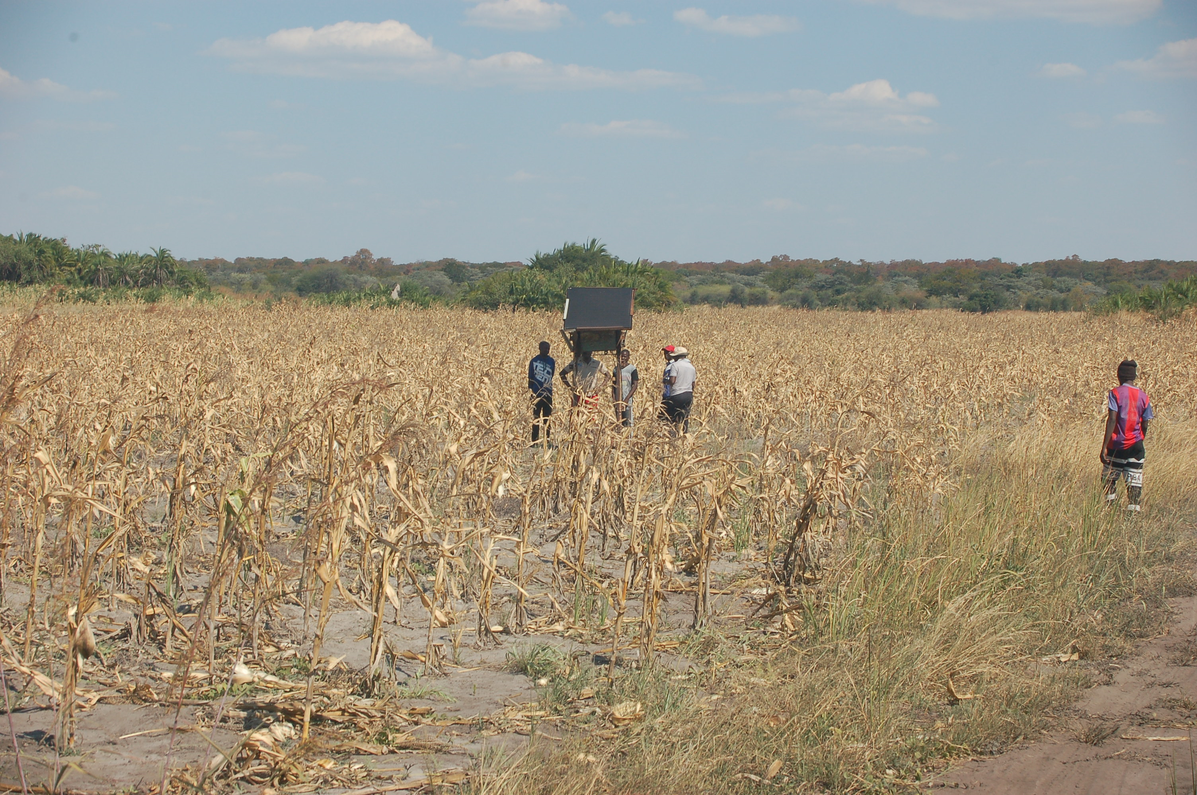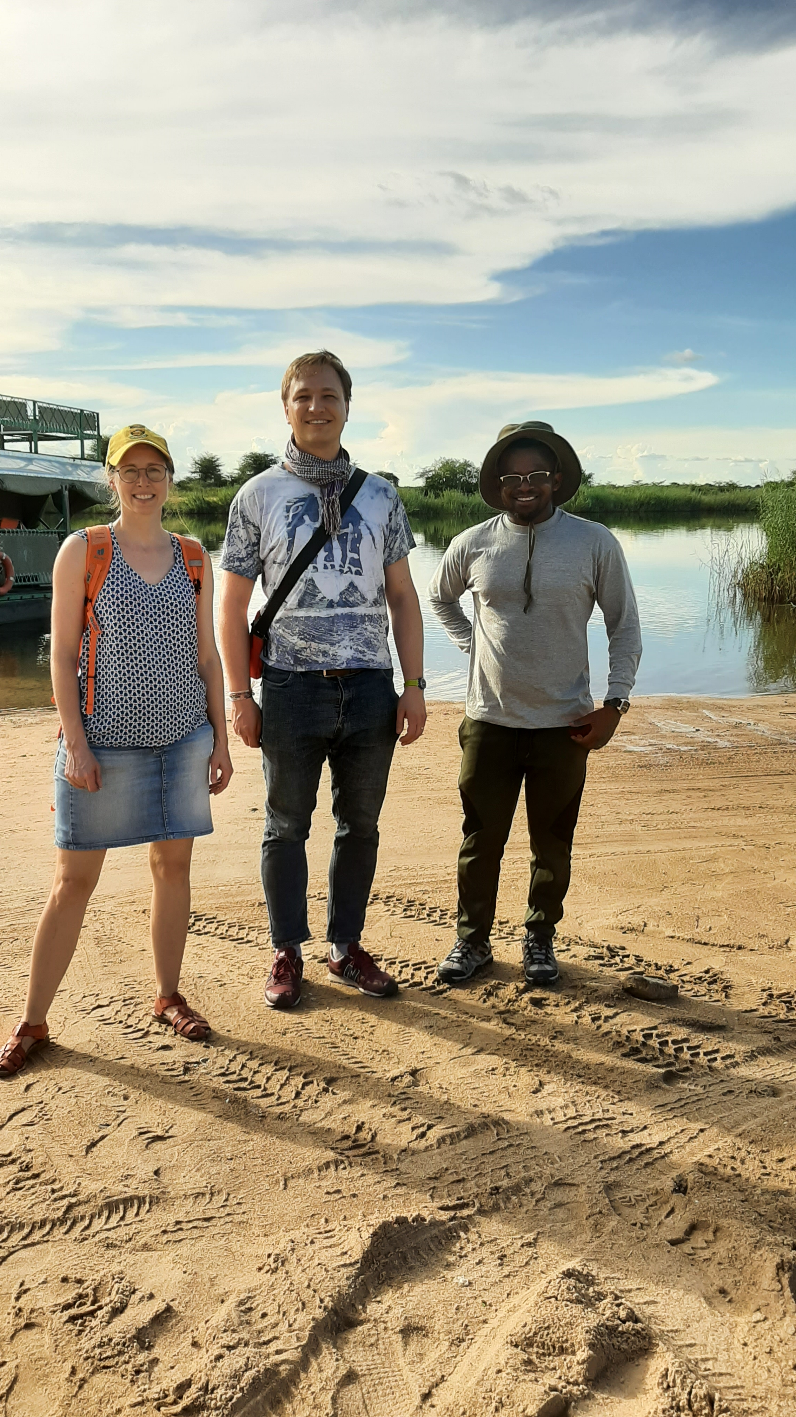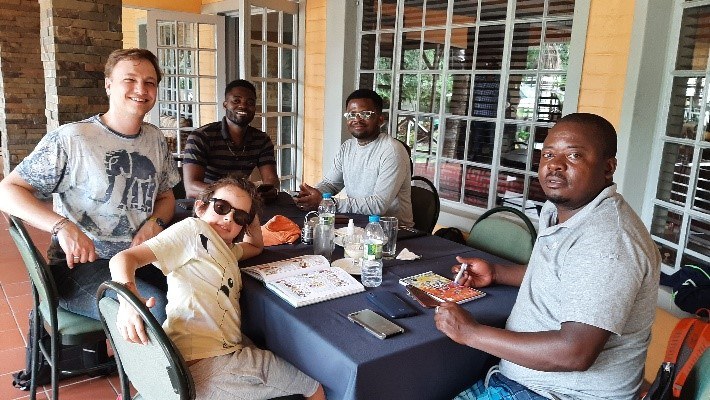ELNAC
- Enhanced Livelihoods and Natural Resource Management under Accelerated Climate Change: a large landscape social-ecological systems approach | duration: 08/2022 - 07/2025
- • Project Summary
- ELNAC addresses the vivid and on-going human-wildlife conflict in the KaZa Transfrontier Conservation Area. It assumes the conflict to be caused by the current conservation paradigm, which stigmatizes local communities (LCs) as degrading agents and excludes them from managing the natural resources around them. Not only livelihoods but also conservation outcomes are jeopardized through this process. ELNAC proposes that conservation, development and food security can be synergetic goals if managed under another, agroecological paradigm. It proposes to integrate landscape analysis with the functional resource heterogeneity and Social-Ecological Systems frameworks to improve the governance of conservation areas and increase the self-determination of LCs in the conservation and food security objectives.
- Village with traditional architecture, maize and pastures in Zambezi region of Namibia, © Domptail, 2023
- • ELNAC - JLU Subproject: Power relations and social metabolism of conservancies and cooperatives
- Central to the fair use of resources for multi-purpose goals and to the integration of various sources of knowledge is the question of power and power relations. By introducing concepts of political and social ecology in the analysis of communities-conservation systems, JLU will address the political aspect by answering the following questions: Who has or attempts to access which resources, and how are livelihood and conservation land uses integrated? For this purpose, we will use the approach of social metabolism, rooted in systems thinking, which combines the dimensions of resource usage in quantity, the sustainability of resource use and the power relations revealed by the usage. JLU will also attempt to reveal more general relations between the distribution of natural resource flows, the trade-offs between livelihood and conservation across case studies.
- Nkasa Rupara National park adjointing the Balyerwa conservancy, Zambezi region, © Domptail, 2023
- Community protected maize field with Solar electric fence to prevent elephant raids in Chulo, Angola, © Meyer-Sand, 2023
- JLU will operate on Namibian, Angolan and Zambian sites. It will measure for conservancies the flows of biomass, food and money. JLU will also map property rights and access to resources, and characterize the sites from a political ecology perspective with a power mapping. Key wildlife-human conflicts and trade-offs will be identified by interpreting the material flows in the light of the historical political ecology of the sites. In Namibia, JLU will investigate the structure of the traditional and statutory governance structures overlapping in conservancies to try and understand the biomass appropriation under conservancies from a critical decolonial political ecology lens. By comparing results across sites, we will seek for patterns shaping the equality of resource use for livelihoods within the conservancies. Importantly, we work in cooperation with NGOs (ACADIR and IRDNC) whose members support us make our research more relevant, more useful to them and to the concerned communities, as well as to support us in a fair exchange with the communities making the conservancies.
- • Principal Investigator JLU
- Justus-Liebig-University Giessen (Germany), Institute for Agricultural Policy and Market Research
- • Angolan partners
- Mr. Antonio Chipita Chipita
- The Association for the Conservation of the Environment and Integrated Rural Development (ACADIR), Menongue, Angola
- • Research associate and doctoral candidate
- Justus-Liebig-University Giessen (Germany), Institute for Agricultural Policy and Market Research
- Justus-Liebig-University Giessen (Germany), Institute for Agricultural Policy and Market Research
- • Namibian partners
- Dr. Jonathan Kamwi
- Namibia University of Science and Technology, Windhoek, Namibia
- Mr. Dominic Mwemba
- • Master student
- Justus-Liebig-University Giessen (Germany), Institute for Agricultural Policy and Market Research
- • Zambian partners
- Dr. Vincent Nyirenda
- Department of Zoology and Aquatic Sciences, School of Natural Resources, The Copperbelt University, Kitwe, Zambia
- • German Partners
- Dr. Achim Röder
- Remote Sensing and Geoinformatik, University of Trier
- • Project coordination and Botswana partners
- Prof. Richard Fynn
- Prof. Toyin Kolawole
- Okavango Research Institute, University of Botswana, Maun, Botswana
- • Acknowledgements
- ELNAC is implemented under the
- and is funded by the Federal Ministry of Education and Research (BMBF), Germany.

